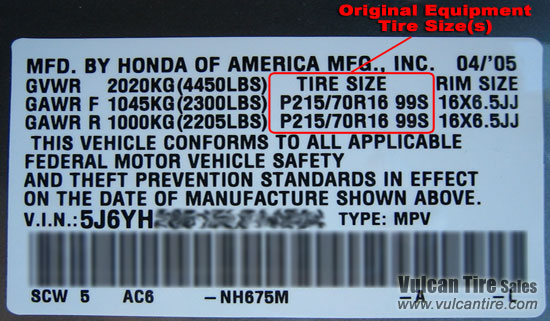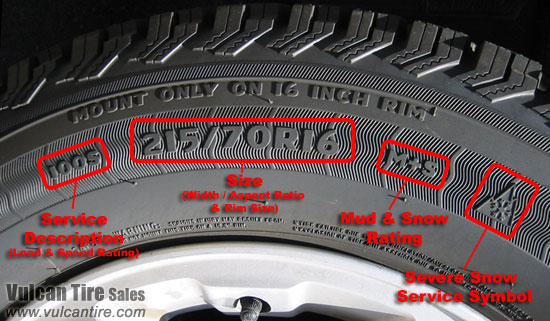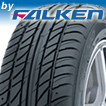Ohtsu Tire prices starting at only $38 per tire!
Ohtsu Tires
| ||||
Use the drop-down boxes below to search for Ohtsu Tires by size.
×
Finding your Tire Size
If you are unsure of your vehicle's tire size the best place to find this information is on the vehicle itself. Do not rely on websites or even your vehicle's owner's manual to determine your tire size. Modern vehicles offer many tire and wheel options so it is always best to check your vehicle itself to determine what tire you need.
First, find your vehicle load and tire information placard. This placard is usually located on the door jamb of the driver's door. See an example of this placard in the picture below.

Next, you will want to look for your tire size and service description on the tire itself. See the picture below for help on finding your tire size on your tire's sidewall.

The tire size listed on the tire information placard should match that of the tires on your car. If the tires on your car are not original, the "service description" may not match exactly, this is generally ok. (More on service descriptions below)
Understanding your Tire Size (What replacement tires are right for you?)
There are two important parts to your tire size; the size itself and the service description:
1. Size The tire size is made up of three numbers. The first number is the tire "width" (listed in millimeters) followed by a "/"; second, is the "aspect ratio" (the sidewall height listed as a percentage of the width) followed by a "R"; then finally the rim size (rim diameter, listed in inches). When determining what tire you need all three of these numbers (width, aspect ratio and rim size) should match exactly.
2. Service Description The tire service description is made up of two parts. The first is a two or three digit number indicating the "load index" of the tire. This determines the weight the tire can carry. When replacing tires, you should select a tire with the same or higher load index than what is listed on the tire information placard (not necessarily what is listed on your current tires).
Following the load index number is a letter called the "speed rating". This letter determines the top speed this tire can handle. (In addition, higher speed ratings usually mean better handling.) In general, you should select a speed rating that indicates the same top speed or higher than what is listed on your tire information placard (not necessarily what is listed on your current tires). In the case of snow tires, it is ok to use a lower speed rating than what your vehicle indicates. (Note that speed rating top speeds do not follow alphabetical order, click here for speed rating values.)
close
If you are unsure of your vehicle's tire size the best place to find this information is on the vehicle itself. Do not rely on websites or even your vehicle's owner's manual to determine your tire size. Modern vehicles offer many tire and wheel options so it is always best to check your vehicle itself to determine what tire you need.
First, find your vehicle load and tire information placard. This placard is usually located on the door jamb of the driver's door. See an example of this placard in the picture below.

Next, you will want to look for your tire size and service description on the tire itself. See the picture below for help on finding your tire size on your tire's sidewall.

The tire size listed on the tire information placard should match that of the tires on your car. If the tires on your car are not original, the "service description" may not match exactly, this is generally ok. (More on service descriptions below)
Understanding your Tire Size (What replacement tires are right for you?)
There are two important parts to your tire size; the size itself and the service description:
1. Size The tire size is made up of three numbers. The first number is the tire "width" (listed in millimeters) followed by a "/"; second, is the "aspect ratio" (the sidewall height listed as a percentage of the width) followed by a "R"; then finally the rim size (rim diameter, listed in inches). When determining what tire you need all three of these numbers (width, aspect ratio and rim size) should match exactly.
2. Service Description The tire service description is made up of two parts. The first is a two or three digit number indicating the "load index" of the tire. This determines the weight the tire can carry. When replacing tires, you should select a tire with the same or higher load index than what is listed on the tire information placard (not necessarily what is listed on your current tires).
Following the load index number is a letter called the "speed rating". This letter determines the top speed this tire can handle. (In addition, higher speed ratings usually mean better handling.) In general, you should select a speed rating that indicates the same top speed or higher than what is listed on your tire information placard (not necessarily what is listed on your current tires). In the case of snow tires, it is ok to use a lower speed rating than what your vehicle indicates. (Note that speed rating top speeds do not follow alphabetical order, click here for speed rating values.)
close
- OR -
Browse Ohtsu Tires by type or style below.
Browse Ohtsu Tires by type or style below.
Ohtsu
Ultra-High Performance
All Season
All Season
UHP A/S
Ultra-High Performance - All Season Ohtsu Tires
Starting at: $49.00
| Overall (35 Ratings) |
| Highest Rated Qualities | |
| 1) Dry Traction | |
| 2) Cornering Predictability | |
| 3) Hydroplane Resistance | |
| 4) Steering Response | |
Ohtsu
High Performance
All Season
All Season
HP A/S
High Performance - All Season Ohtsu Tires
Starting at: $38.00
| Overall (12 Ratings) |
| Highest Rated Qualities | |
| 1) Comfort | |
| 2) Dry Traction | |
| 3) Noise Level | |
| 4) Steering Response | |
© Copyright 1997-2025, Vulcan Sales, Inc




